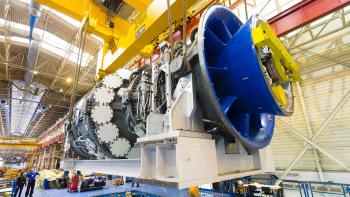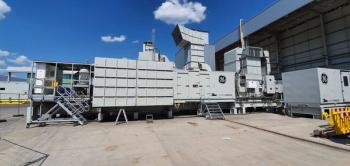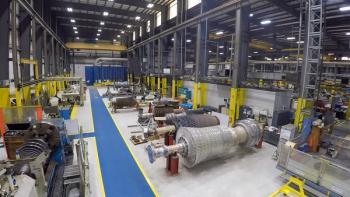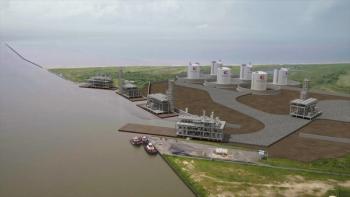
Baker Hughes releases new composite flexible pipe for onshore pipelines
Baker Hughes launched its next generation Onshore Composite Flexible Pipe to address the corrosion and cost of ownership challenges with conventional steel pipe for the energy, oil and gas and industrial sectors.
The flexible, lightweight reinforced thermoplastic pipe (RTP) is an alternative to resource-intensive onshore steel pipes to for optimize the core structure of flowline and oil and gas pipeline networks. A key feature of the pipe is its spoolable design, making it easier, faster and more cost-effective to transport and install versus steel pipe – reducing installed costs by more than 20%. Installation also requires fewer onsite support facilities and heavy vehicles, de-risking operations, taking up less width on a pipeline right-of-way and reducing environmental impact on surrounding land.
The Onshore Composite Flexible Pipe offers an economic solution for the transport of CO2 and hydrogen, as well as the conversion of existing infrastructure to carry gases. In addition, the pipe’s non-corrosive materials can withstand contaminants without requiring chemical inhibitors, corrosion monitoring and inspection, or disruptive repair work.
The composite pipe will be manufactured at Baker Hughes’ state-of-the-art facility in Houston, Texas. With a 400,000-square-foot footprint, the facility will provide 3-4 times additional manufacturing capacity compared to Baker Hughes’ current capacity for flexible pipe solutions. The pipe will be available up to 8 inches in diameter, with a variety of liners including nylon, polyphenylene sulfide (PPS), and high-density polyethylene (HDPE), and delivering fluid pressures up to 2250 PSI.
Newsletter
Power your knowledge with the latest in turbine technology, engineering advances, and energy solutions—subscribe to Turbomachinery International today.




